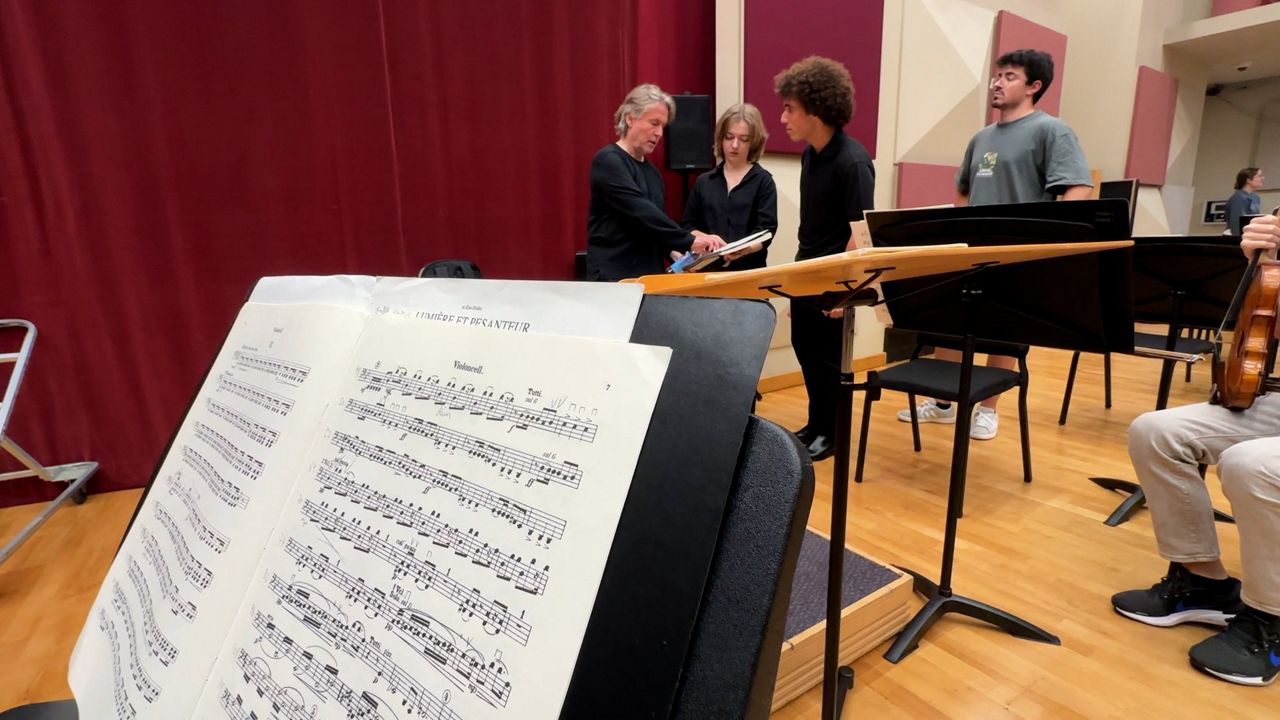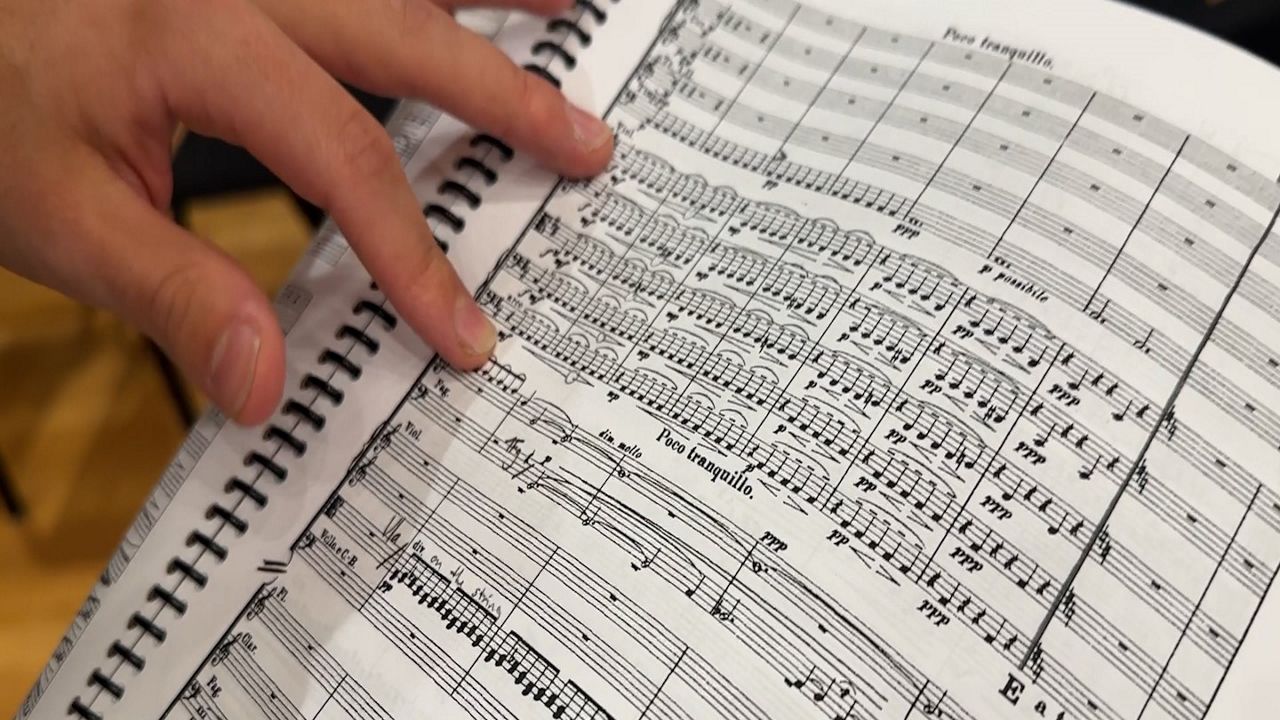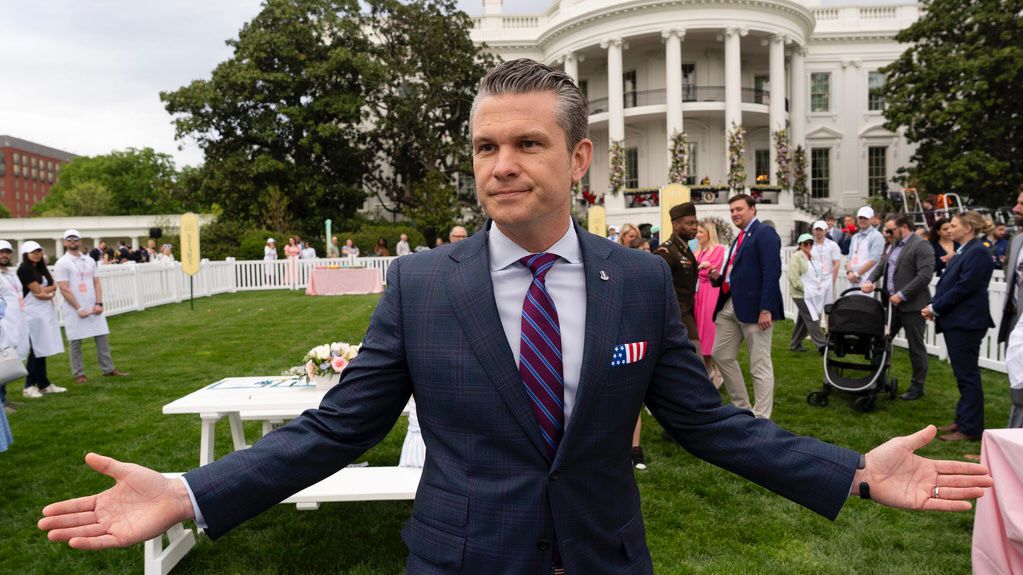LOS ANGELES — The swell of the strings. The momentum of the melody. Alexandra Melaniuk’s happy place is standing in front of an orchestra, baton in hand.
“I think it’s the most beautiful thing that we share everything together on stage,” she explained. “And I am the factor that kind of holds everything together, but it’s all of us who make the moments.”
The reality is that for a long time it’s been mostly men making those moments.
According to the League of American Orchestras, fewer than a quarter of conductors, assistant conductors and music directors, identify as female — and while that’s double what it was in 2014, they said the growth was mostly seen in smaller-to-medium budget orchestras.
Melaniuk is currently one of only two Salonen Conducting Fellows in the Colburn School Conservatory of Music’s Negaunee Conducting Program, working with and learning from Maestro Esa-Pekka Salonen.
She said the world-renowned conductor and composer, who is currently the music director of the San Francisco Symphony, hand-selected her for the opportunity after seeing her conduct a concert.

While she recognizes that the gender ratio in her profession is still greatly imbalanced, she tries to view it as a growing crescendo.
“I have many female conducting friends who have great careers,” Melaniuk said. “I think we are more and more present with every year, every season, which is good news,”
Change is an adagio, and there are several reasons why the tempo isn’t accelerating.
Molly Turner also served as a Salonen Fellow and is currently a Dudamel Fellow, working alongside Maestro Gustavo Dudamel with the LA Phil.
She is also a Conducting Fellow with the New World Symphony under Michael Tilson Thomas.
Notice a motif?
“All of my mentors were men,” she said in a zoom interview from Miami. “They’re all wonderful, wonderful people. I’ve learned so much from them. But for me to have like a female mentor or someone that looks like me, that has gone through a different experience, that is like priceless.”
That can’t really happen until more women reach the upper echelons of the profession.
Turner said female and non-binary conductors get opportunities as guest conductors or assistant conductors but rarely reach the roles of artistic or music directors.
“I think it’s because the gatekeepers, the people who are choosing these positions are still also very unequal,” she said. “These choices are made behind closed doors. And at the moment, that final push is just not there yet.”
Diversity in conducting isn’t just about gender. An orchestra is a like a tiny city Turner said, and idealistically should be a reflection of the actual city it calls home.
“It like creates more trust and more connection between the audience and the orchestra when the orchestra starts to look like the people in the community,” Turner mused.
Mert Yalniz is the other Salonen Fellow with Melaniuk. He is Turkish and German.

She was raised in Poland and Scotland. Yalniz said it’s important to cultivate a generation of conductors from all backgrounds all over the world.
“It doesn’t matter where they come from because they will definitely bring some very interesting and individual…voices,” he said. “Our voice…will definitely change the musical world in a few years, in a few decades.”
Melaniuk is so grateful to be a fellow, travelling with Salonen and assisting him internationally, but said she’s ready to do things under her own name.
She thinks one way to help turn the tide is for female conductors to be more intentional about the jobs they accept.
“We usually get just educational concerts whereas our male friends tend to get regular concerts way more early in their career,” she pointed out. “I think we should set our boundaries as well and we should really fight for what’s ours because this is all for everyone.”
Passing the baton isn’t something that happens easily or overnight, but as fellowships welcoming candidates from diverse backgrounds, greater parity at the podium is starting to seem more possible.












